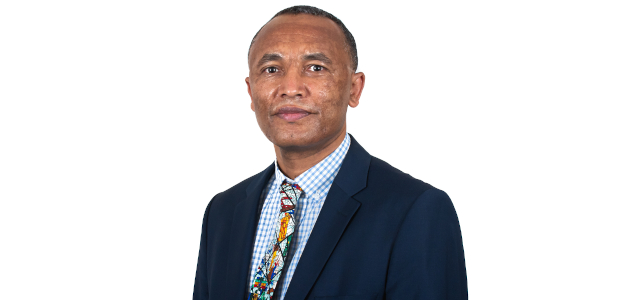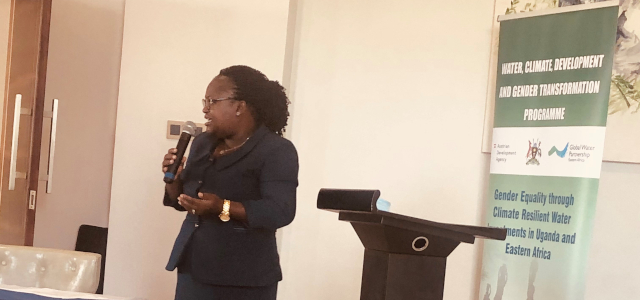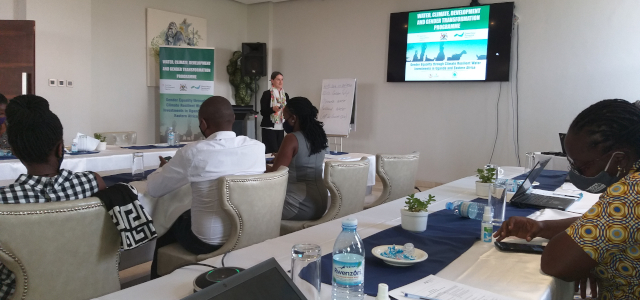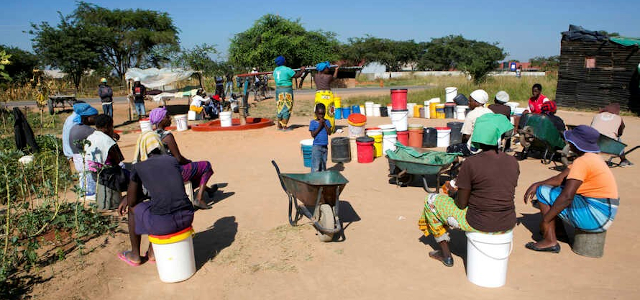“Vulnerable people especially women, girls, and children need social and environmental systems that are resilient to climate change”, said Kidanemariam Jembere, GWP Africa Technical Advisor.

Kidanemariam Jembere – GWP Africa Technical Advisor
Speaking at the Continental Africa Water Investment Program (AIP) Inception Meeting for Uganda, Jembere said that a gender gap exists in water resource management across the continent. The AIP aims to leverage USD30bn in climate resilient water investments by 2030 across Africa. Gender disparities identified in the access, management, design to water resource will be addressed through the AIP's Support Programme on Water, Climate, Development, and Gender – also known as AIP WACDEP-G.
The inception meeting was held on 4 February 2020, in Kampala, Uganda with the objectives of introducing the AIP WACDEP-G program to key stakeholders in the country, mobilising partnership for program implementation and raising awareness on gender transformative approach to water security and climate resilience.
The AIP WACDEP-G implementation in Uganda is informed by a comprehensive gender analysis, commissioned in 2020 by GWP.
“The analysis revealed that Uganda has made a considerable effort in designing policies that include women beneficiaries and address gender needs and issues,” said Carol Benda, GWP Eastern Africa (GWPEA) Gender Advisor, presenting the results of the gender assessment in Uganda. “However, the policies do not fully address the underlying causes of gender-based inequality, harmful gender norms, and unequal power relations."
AIP WACDEP-G will adopt a gender-transformative approach for strengthening water security and climate resilience and promoting gender-transformative planning and investment decision-making.

Carol Benda, GWP Eastern Africa (GWPEA) Gender Advisor
In Uganda, WACDEP-G is operationalised through a collaboration between the Ministry of Water and Environment and the GWPEA Secretariat.
Dr Florence Adongo from Uganda's Ministry of Water and Environment described the WACDEP-G programme as a timely intervention.
“The AIP WACDEP-G programme is fundamental to Uganda’s socio-economic development because integrating gender equality in all our programming as the national Ministry of Water and Environment is essential for ensuring water security and developing climate resilience for our entire population,” said Dr Adongo.
During the workshop, the Austrian Development Agency (ADA) confirmed its continuous support to the Programme.
“ADA will continue to support GWPEA, the water ministry, other Partners and the population as a whole in their efforts to ensure equitable access, particularly women and vulnerable groups, to safe affordable, reliable drinking water and sanitation which are resilient to climate change,” said Dr Roswitha Kremser, Head of Uganda Office, Coordination Office for Development Cooperation, Austrian Embassy.

Dr Roswitha Kremser, Head of Uganda Office, Coordination Office for Development Cooperation, Austrian Embassy
The meeting was attended by representatives from government ministries and institutions responsible for water, climate, gender, finance, and economic planning, research and academic institutions, financing partners, private sector, and civil society.
The AIP WACDEP-G programme is being piloted in five countries across five African regions: Uganda in East Africa, Zambia in Southern Africa, Tunisia in North Africa, Cameroon in Central Africa, and Benin in West Africa.
Financial support comes from the Austrian Development Agency. The programme builds up from the Flagship WACDEP Africa Programme piloted in Africa by GWP on behalf of the African Ministers' Council on Water (AMCOW).
Photo Credit: Associated Press
